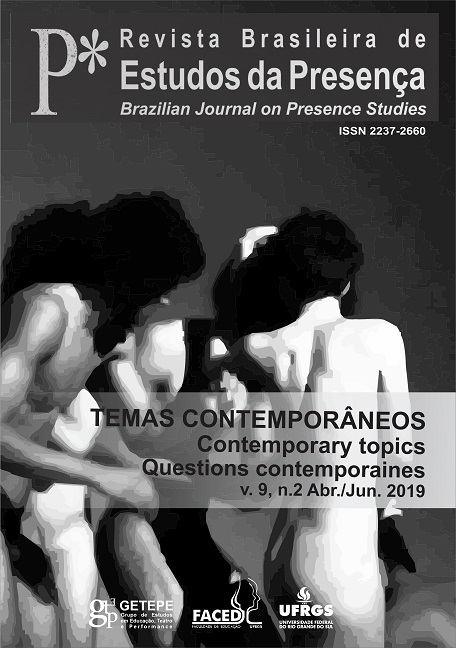The Monstrous Flesh: collective bodies and the State-Form in Modern Mesopotamia
Keywords:
Biopolitics, Monster, Political Autonomy, Islamic State, ColonialismAbstract
The Middle East is in chaos. Having been described as monstrous, the Islamic State (ISIL) has been defeated only to come back as a chronic guerrilla style insurgency and the shadow of further conflicts that are still looming in the region. The following article takes up this situation through the concept of the biopolitical monster as the common body of resistance and struggle, exploring the liberatory aspects of this concept in terms of organization and political autonomy, and argues that ISIL has more in common with the State-form than with the monstrous. Discussing the colonial and neo-colonial aspects of the situation, the case of Kurdish Northern Syria will be presented in contrast to the ISIL. It continues to argue for a social monstrous flesh as the performative body of contemporary protest movements, tracing back the rhizomatic etymologies of monster to Aristotle and early Islamic philosophers, drawing inspirations mainly from the tradition of immanent thought and its contemporary thinkers such as Foucault, Deleuze, Guattari, and Negri.
Downloads
Downloads
Published
How to Cite
Issue
Section
License
Readers are free to transfer, print out and use the articles published in the Journal, as long as there is always explicit mention to the author(s) and to the Revista Brasileira de Estudos da Presença and as long as there is no alteration of the original work. Any other use of the texts needs to be approved by the author(s) and by the Journal. By submitting an article to the Revista Brasileira de Estudos da Presença and having it approved, the authors agree to assign, without compensation, the following rights to the Journal: the rights of first publication and the rights to redistribute the article and its metadata to the indexing and reference services that the editors deem appropriate.
 This journal use a Licença de Atribuição Creative Commons.
This journal use a Licença de Atribuição Creative Commons.

















